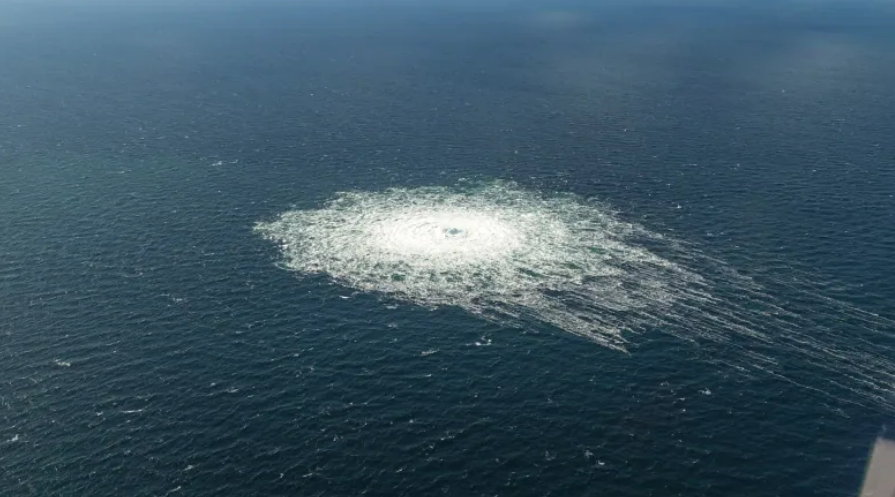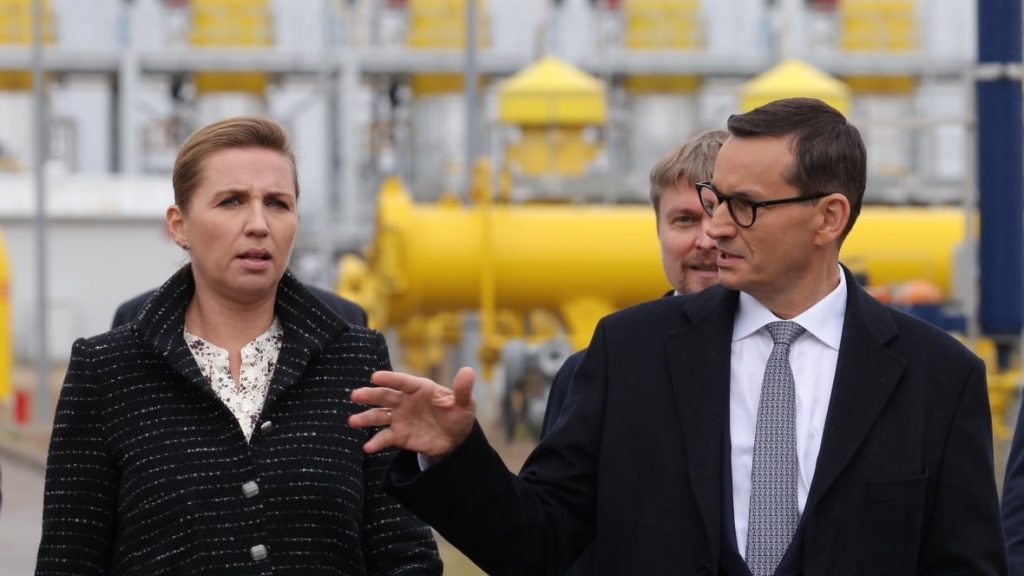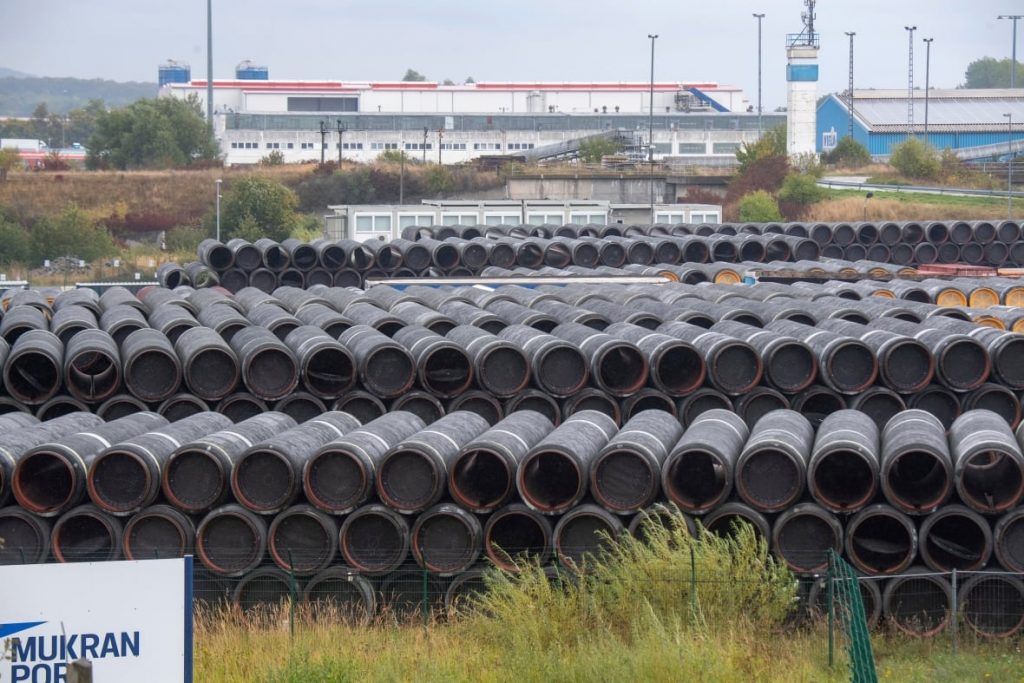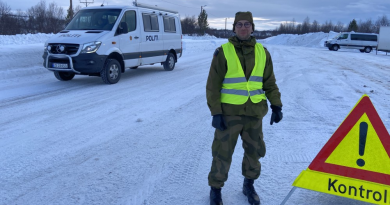Nord Stream pipeline damages in Baltic Sea raises suspicion of sabotage

The Swedish national seismic network says it detected two explosions close to unusual leaks discovered this week on two Russian natural gas pipelines running under Baltic Sea.
The National Seismology Centre at the Uppsala University told Sweden’s public broadcaster SVT that it registered one blast early Monday southeast of the Danish island of Bornholm, and a slightly larger one later that night northeast of the island.
It says the latter explosion was equivalent to a magnitude-2.3 earthquake.
Danish Prime Minister Mette Frederiksen earlier said she “cannot rule out” sabotage after three leaks were detected over the past day on Nord Stream 1 and 2.
“We are talking about three leaks with some distance between them, and that’s why it is hard to imagine that it is a coincidence,” said Frederiksen.

The pipelines are not currently bringing gas to Europe as an energy standoff over Russia’s war in Ukraine halted flows or never allowed them to begin.
However, gas still fills the lines, leaving open the possibility of localized environmental damage.
Polish PM slams Russia
Frederiksen was with Poland’s President Andrzej Duda and Prime Minister Mateusz Morawiecki, opening a valve of a yellow pipe belonging to the Baltic Pipe, a new system set to bring Norway’s gas across Denmark and the Baltic Sea to Poland beginning next week.
Morawiecki went further than his Danish counterpart, characterizing events as “an act of sabotage.”
“The era of Russian domination in the gas sphere is coming to an end,” Morawiecki declared, calling it “an era that was marked by blackmail, threats and extortion.”
No official presented evidence of what caused the problems, but in central Europe where distrust of Russia runs high, there were fears Moscow sabotaged its own infrastructure in a gesture of spite or to signal that all pipelines are vulnerable to attack. The leaks emerged off the coast of Denmark and Sweden, raising the stakes on whether energy infrastructure in European waters was being targeted and leading to a small bump in natural gas prices.
Each line of the pipeline consists of about 100,000 24-tonne concrete-weight coated steel pipes laid on the seabed of the Baltic Sea. The pipelines have a constant internal diameter of 1.153 metres, according to Nord Stream.
Sections of the pipelines lie at a depth of around 80-110 metres. Natural gas is methane, which partially dissolves in water and is not toxic. The deeper the gas is released in the sea, the higher the proportion that dissolves in the water.
Nord Stream AG said it was impossible to estimate when the gas network system’s working capability would be restored.
“The destruction that occurred on the same day simultaneously on three strings of the offshore gas pipelines of the Nord Stream system is unprecedented,” the Nord Stream consortium said.
‘Very alarming’: Russian government
Kremlin spokesman Dmitry Peskov called the leaks “very alarming.”
“This is an unprecedented situation that requires an urgent investigation. We are extremely worried by this news,” he said in a conference call with reporters.

Asked if the accident may have been caused by an act of sabotage, Peskov said that “no version could be excluded.”
Danish authorities said Monday that a leak was detected in the Nord Stream 2 pipeline, which has never been used. They later announced a major pressure drop on the parallel Nord Stream 1, which until recently has been a key source of gas to Germany.
The Swedish Maritime Administration said Tuesday that two leaks were discovered on Nord Stream 1, which partly runs in Swedish waters.
The leaks in the pipelines have been detected northeast and southeast of the Danish island of Bornholm.
The Danish Maritime Authority issued a navigation warning and established a prohibited area to ensure that ships do not go near the leaks. Ships may lose buoyancy if they sail into the area, and there may also be a risk of ignition above the water and in the air, the Danish authorities said.
Energy concerns with winter looming
Because the pipelines aren’t actively sending gas to Europe, the leaks did not pose any threat to energy supplies, and experts said the environmental impact would be limited.
With the continent needing gas to heat homes, generate electricity and run factories, the energy crisis provoked by Russia’s war in Ukraine threatens rationing, business shutdowns and possible recession this winter.
Several European countries have decided to cap prices for businesses and consumers, while sourcing alternate sources of energy.
Ottawa was dragged into the fray this summer when Nord Stream turbines required maintenance at Siemens Canada in Montreal. Ukraine criticized the Liberal government for acquiescing to German requests for the company to be exempt from sanctions that have been applied across industries for doing business with Russia since the Ukraine invasion in February.
With files from Reuters
Related stories from around the North:
Canada: NATO chief tours Arctic defences as Canada comes under pressure, CBC News
Finland: Finland says traffic ‘intensifying’ on border with Russia, The Independent Barents Observer
Norway: Norway formally scraps Russia visa deal, The Independent Barents Observer
Russia: FSB tightens control at Arctic exit route amid border closure rumours, The Independent Barents Observer



